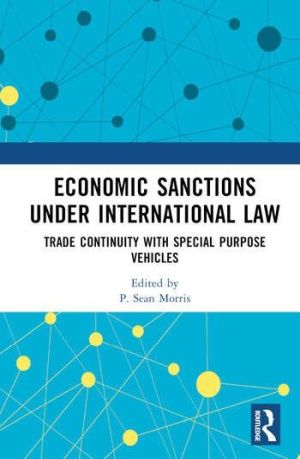
The effects of US secondary sanctions are broad and are often designed to cripple the target country’s economy and currency. Some states have sought to circumvent these sanctions by setting up a special purpose vehicle to facilitate trade and financial transactions with the sanctioned country on humanitarian grounds. Although the nature of these special purpose vehicles is new and experimental, they are little understood, not least how they operate and function in international law. This volume addresses this gap by identifying and examining some of the legal issues that a special purpose vehicle such as the Instrument in Support of Trade Exchanges (INSTEX) generates.
The collection brings together leading legal academics, sanctions practitioners and policy experts to provide an assessment of the special purpose vehicle in the context of secondary sanctions in international law. It will be of interest to researchers and academics in International law, Security law, Economic law and Comparative law.